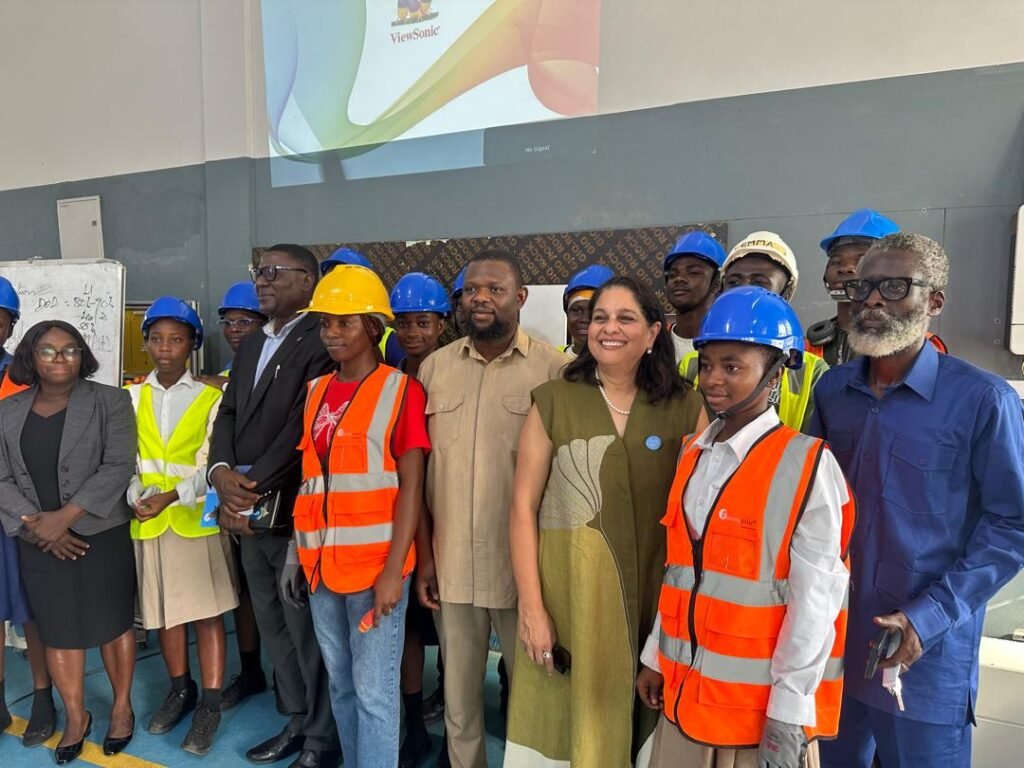A high-level roundtable on Technical and Vocational Education and Training (TVET) has reaffirmed Ghana’s commitment to building a skills-driven economy through coordinated reforms and global partnerships.
The session, themed “Reimagining TVET in Ghana,” brought together key policymakers, development partners, and industry leaders at the Applied Technology Institute to chart a forward-looking roadmap for the sector.
Hosted by the Commission for Technical and Vocational Education and Training (CTVET) in collaboration with UNICEF Ghana, the meeting underscored the importance of aligning education with labour market needs while ensuring inclusivity and sustainability.
It was attended by senior officials from the Ministry of Education, parliamentarians, representatives from international organisations, and other sector stakeholders. Dr. Pia Rebello Britto, UNICEF’s Global Director for Education and Adolescent Development, led a high-level delegation to the event and lauded Ghana’s efforts to reposition TVET as a cornerstone of national development.
“I am truly impressed by the level of commitment and the results achieved in Ghana’s TVET sector. UNICEF remains committed to working closely with CTVET, the Ministry of Education, and all partners to build a system that empowers young people with the skills and opportunities they need to thrive”
Dr. Pia Rebello Britto, UNICEF’s Global Director for Education and Adolescent Development

She emphasized that UNICEF’s collaboration with Ghana aims to ensure that the country’s TVET system remains inclusive, future-ready, and aligned with global standards. Her remarks reinforced UNICEF’s continued support for Ghana’s education sector reforms, particularly those targeting youth employability and skills development.
Government’s Vision for Skills Development
Representing the Director General of CTVET, Deputy Director General Mr. Anthony Kwame Zu highlighted the Commission’s role in driving Ghana’s transformation agenda under Act 1023. He stated that ongoing reforms are aimed at creating a demand-driven system “capable of producing a competitive workforce for the 21st-century economy.”
“The Government of Ghana, through CTVET, continues to pursue ambitious reforms such as the Competency-Based Training framework, establishment of Sector Skills Bodies, and the upcoming TVET Policy to create a coherent and demand-driven system. Partnerships like this are essential to sustaining and scaling our progress”
Mr. Anthony Kwame Zu, Deputy Director General of CTVET
He further outlined that CTVET’s mission goes beyond regulation, focusing on ensuring quality, relevance, and accessibility in technical and vocational education.

Members of Parliament who participated in the session, including Hon. Deh Fred Sebastian, MP for Kpando and Board Chairman of the TVET Service, and Hon. Peter Nortsu-Kotoe, MP for Akasti North and Chairman of the Parliamentary Select Committee on Education, praised the Commission’s leadership in harmonising TVET delivery.
They pledged Parliament’s continued support for policies and funding mechanisms that will enhance skills training and youth employment opportunities. Their remarks highlighted the growing bipartisan consensus on the need to prioritise technical and vocational education as a national development pillar under President John Dramani Mahama’s administration.
A Model for Africa
Development partners such as Mastercard Foundation, represented by Ing. Peter Narh; GIZ, represented by Mrs. Patricia Boso; and the African Development Bank, represented by Mr. Abeliwine Emmanuel, shared insights on coordinated financing and sustainable partnerships.
The event featured the presentation of a Development Partner Coordination Matrix, designed to enhance collaboration among stakeholders and avoid duplication of projects. This matrix was lauded as a significant step toward ensuring that Ghana’s TVET reforms deliver measurable outcomes and align with national and regional development goals.
In her closing remarks, Dr. Britto described Ghana’s evolving TVET landscape as a model for scalable adolescent and youth skills development across Africa. “Ghana’s TVET system represents a coherent framework that connects training, industry, and employment – a model other countries can learn from,” she said.

Her comments captured the broader sentiment at the roundtable, which concluded with a renewed commitment from all participants to support the government’s vision for a modern, inclusive, and sustainable TVET ecosystem.
According to CTVET and UNICEF, this collaboration is expected to strengthen institutional capacity, promote innovation, and position Ghana as a regional leader in skills development. The outcomes of the roundtable will feed ito future policy dialogues and inform ongoing efforts to align education with industrial transformation.























